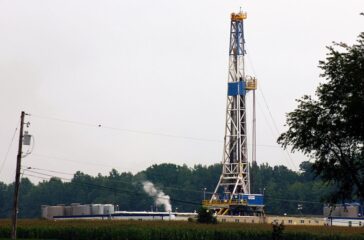Risks of fracking are “real and growing,” report warns
By Dana Drugmand
The human and environmental health risks associated with hydraulic fracturing, commonly known as fracking, are indisputable and growing, according to a new report synthesizing nearly a decade of research.
 EWG
EWG